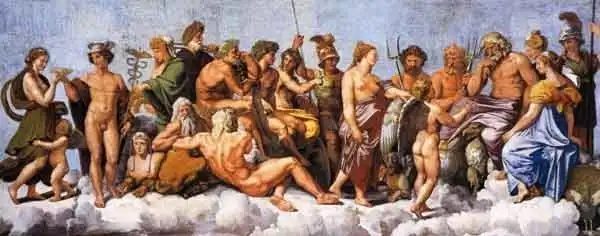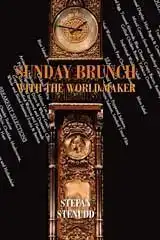The Meanings of Mythology Theories through History about Myth and Fable
Mythology and FableThe term myth comes from the Greek mūthos, meaning a word or a saying also as in a narrative, mainly spoken. Homer and Hesiod used it in the sense of story, without thereby implying anything about it being fiction or fact.Actually, they as well as several pre-Socratic philosophers used it interchangeably with logos, a term later strongly connected to the idea of rational thought. Not until Plato is there evidence of the opposition between the two words, common thereafter. [Gerard Naddaf, 'Allegory and the Origins of Philosophy', Logos and Muthos: Philosophical Essays in Greek Literature (ed. William Wians), Albany 2009, 101.] In Ancient Greece, Plato was the first to use the word muthologia, and did so with several meanings to it: the myths of a culture, collecting myths, telling them, making them, and studying them critically. [Naddaf 2009, 102.] It was not until the 19th century the word myth was being used in literature, but the word mythology was widely used in previous centuries. [The Concise Oxford Dictionary of English Etymology, edited by T. F. Hoad, Oxford 1986, 307.] Instead of myth, the term fable signified the same, though mainly referring to the Greek myths as did the term mythology before the 19th century. Samuel Johnson's Dictionary from 1755 has no entry for myth, but for mythological, mythologically, mythologize, and mythology. The word myth is not even mentioned. Instead the word fable is used, as in the definition of mythology: System of fables; explication of the fabulous history of the gods of the heathen world. The modesty of mythology deserved to be commended: the scenes there are laid at a distance; it is once upon a time, in the days of yore, and in the land of Utopia. ['Mythology' in Samuel Johnson, A Dictionary of the English Language, London 1755, vol. 2, p. 1345.]
NEXTMythology and fable in the first encyclopedia: Louis de Jaucourt.
Mythology Meanings Menu
MENUCreation Myths Around the WorldHow stories of the beginning began.
The Meanings of MythologyTheories through history about myth and fable.
Archetypes in MythsThe mythological symbols and what they stand for.
The Logics of MythPatterns of creation.
CREATION MYTHS IN DEPTHCreation in Rig Veda 10:129The paradox of origin, according to an Indian myth.
Genesis 1The first creation story of the bible scrutinized.
Enuma ElishThe ancient Babylonian creation myth.
Xingu Creation of ManThe insoluble solitude of gods and humans.
ContactAbout Cookies
ON MY OTHER WEBSITESPsychoanalysis of MythWhat Sigmund Freud and C. G. Jung thought about myths, their origins and meanings.
Myth of CreationAn introduction to the subject of creation myths and the patterns of thought they reveal.
Cosmos of the AncientsWhat the Greek philosophers believed about the cosmos, their religion and their gods.
Life EnergyThe many ancient and modern life force beliefs all over the world explained and compared.
TaoisticTaoism, the ancient Chinese philosophy of life explained. Also, the complete classic text Tao Te Ching online.
|
 Archetypes of Mythology
Archetypes of Mythology Psychoanalysis of Mythology
Psychoanalysis of Mythology Cosmos of the Ancients
Cosmos of the Ancients Life Energy Encyclopedia
Life Energy Encyclopedia Sunday Brunch with the World Maker
Sunday Brunch with the World Maker Fake Lao Tzu Quotes
Fake Lao Tzu Quotes Stefan Stenudd
Stefan Stenudd